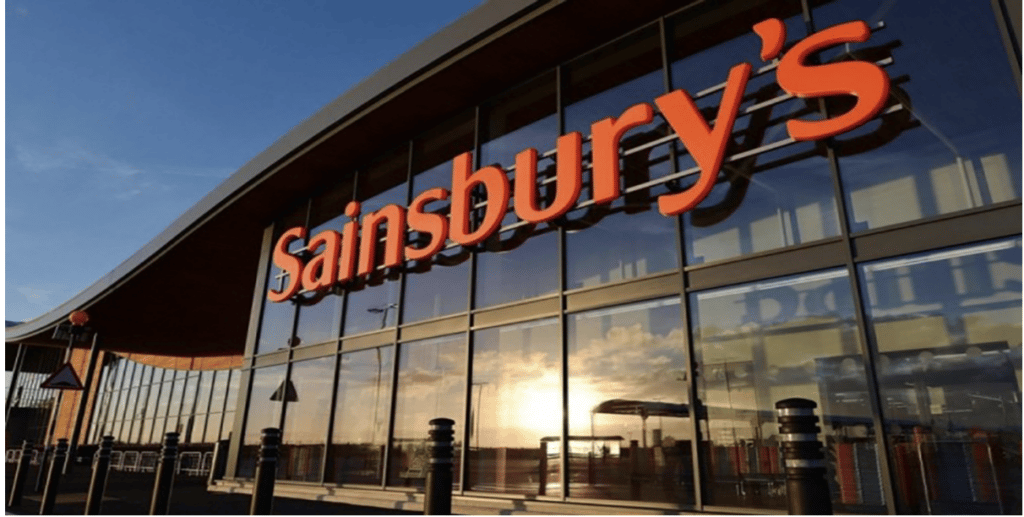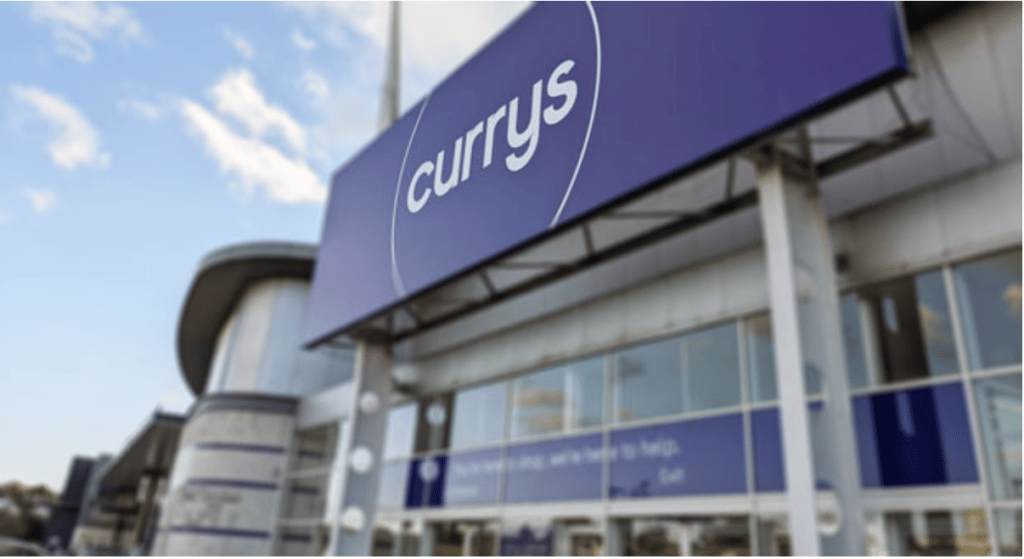It is no secret that the economy of Europe, especially the United Kingdom, has faltered for some time, owing largely to the widespread Covid-19 pandemic.
Inflation has increased significantly due to greater consumer demands—yet citizens are also being forced to pay high energy fees, which is attributed to the ongoing Russia-Ukraine war. It has destabilized global oil prices. To fight against persistent inflation, the country’s central bank raised its benchmark interest rate from 3.5% to 4%—the highest level in more than 14 years.
Sadly for the investors, the move will be a de-stimulator and hit their portfolios, especially those heavily invested in the stock markets. In fact, analysts and experts expect the interest rate to reach 4.5% in the summer, which will further make investors panic and trigger a significant selloff in the stock market.

However, while this may be true for most investors, there is a silver lining for those who have invested in gold that performs well during times of economic uncertainty and financial panic, as it provides an alternative store of value that ensures that inflationary pressures will not erode their wealth.
To stay on topic, let’s look at five stocks that are prone to the negative effect of the rising central bank rate.
1. Rolls-Royce

Sector: Aerospace & Defense
Market Cap: $11.16 billion
Dividend Yield: N/A
The aerospace and defense company is a global leader in defense and aerospace, providing military and commercial customers with the world’s best-performing power systems, aerospace products, and services. Rolls-Royce is also a leading provider of marine solutions, offering state-of-the-art power systems for the marine industry.
Aside from the rise of interest rates and inflation, every other thing is working in favor of Rolls-Royce. The company enjoys a large market; in 2021, the company’s net income increased to $165 million—a significant turnaround from a loss of $4.070 in 2020. In fact, with China’s removal of its zero-Covid case, one can expect that the company will be in a stronger position to generate more revenue and profits.
However, the interest rate hike and inflation will negatively impact Rolls-Royce’s bottom line. Interest rate is derived from an increase in the cost of borrowing, affecting consumers’ spending power. When interest rates go up, consumers are less likely to spend because they cannot afford goods that require high finance costs.
2. J Sainsbury Plc

Sector: Food & Drug Retailers
Market Cap: $7.67 billion
Dividend Yield: 4.53%
The company is a food retailer in the United Kingdom. The company operates under two divisions: Retail and Property. Its Retail division offers food and non-food products through its supermarket, convenience store, and online channels. Its Property division provides property management services to third parties across Sainsbury’s estate of properties in the UK.
Sainsbury’s is one of the most trusted grocery brands in the UK, with sales almost double that of its closest competitor aside from Tesco. As a result, it raised prices faster than its competitors over the past few years—except for Tesco—which has driven earnings growth for investors. According to Statista, Tesco and Sainsbury’s had the largest market share in December 2022, holding 43 percent between them.
Sainsbury’s pricing strategy aims to offer customers good value for their money; this, along with a consistent quality of products and services, helps retain customers. It uses market-share dominance to achieve long-term growth instead of cutting prices—a strategy that only delivers short-term gains. While this could have been a turn-on for investors, the rise in interest rate means consumers’ demand for the company’s products will shrink.
3. Deliveroo Plc

Sector: Communications
Market Cap: $1.65 billion
Dividend Yield: N/A
Deliveroo is a technology company that provides an online food delivery platform to restaurants in the United Kingdom. The company’s technology enables restaurants to offer delivery services by connecting them with local riders who deliver meals from their restaurant to customers. The company, founded in 2013, has its headquarters in London and has more than 3,000 employees.
The company has been making gains in the food delivery space and has been a strong competitor to Uber Eats, another online food delivery platform listed on the New York Stock Exchange. Of course, the rise in interest rates will affect a lot of businesses and have a negative effect on consumers’ spending. In addition, people will choose to cook instead of ordering in, which will reduce deficits.
If you’re an investor holding this stock, you should know that the rise in interest rate will affect the company’s profitability. For example, suppose you’re an investor in a restaurant and see that people aren’t ordering as many pizzas or burgers because they’re cooking more at home. In that case, the companies will operate at a loss and have to retrench some employees. This will only add more salt to the wound, as it will further impact the economy and reduce spending by people.
4. Young And Co’S Brewery Ord Shs

Sector: Consumer Staples
Market Cap: $523.72 million
Dividend Yield: 1.95%
Young and Co’S Brewery Ord Shs is a holding company that engages in the brewing and sale of beer, wine, and spirits. It operates through the following segments: Beer & Other Alcoholic Beverages, Wine & Spirits, and Other Operations. The company was founded by Charles Young and Anthony Bainbridge in 1831 and is headquartered in Garratt Lane, London.
The beer industry is a tough one to be in these days, especially with the new rise in interest rates. Consumers’ spending will be halved, and people will likely be drinking less alcohol than they did in the past. More significantly, consumers will turn their attention to healthier beverages and more natural foods that are more affordable.
In fact, the last time there was an interest rate increase, the British Beer and Pub Association responded that; ‘Pub owners and brewers want to avoid increasing prices for loyal customers, but are stuck between rising costs and fixed incomes. Running their businesses has become cost-prohibitive, and now that interest rates are rising, customers will cut back even further.’ The response from pub owners and brewers shows that they find it challenging to keep their businesses afloat when interest rates are rising – a situation that directly impacts Young And Co’s Brewery Company.
5. Currys Plc

Sector: Consumer Discretionary
Market Cap: $894.89 million
Dividend Yield: 4.02%
Currys Plc is a United Kingdom-based retailer of electrical goods, household appliances, and white goods. The company has a lot of stores across the United Kingdom, and its products are also sold through its website. The company provides home appliances, including refrigerators, washing machines, dishwashers, freezers, and vacuum cleaners.
The company also sells computers and IT products such as laptops, monitors, and printers. These are products that people are less likely to spend on when the economy is slowing down. In fact, inflation has never been friendly to the IT industry, as many of the companies in the industry have laid off their employees; the interest rate increase is another reason why the industry will be more affected.
However, if consumers must spend on these items, they will look elsewhere for the cheapest product they can find at a more competitive price online. With the market flooded with similar products, it is no wonder that customers will look for cheaper alternatives. With the interest rate increase looming over their heads, the company’s customers will look for other options.
Why Should I Sell These Stocks?
With the increase in interest rates, the market is expected to drop. Stocks will also decrease as many other companies are more stable and profitable than this one. This means that these companies will gradually lose their customers and investors, and their profit margins will be negatively impacted.
Furthermore, consumer confidence will also decrease. With the increase in interest rates, people will be more cautious about spending their money on luxury items like these stocks. This is because they will want to save as much money as possible to pay their other essential bills, as the interest rate may increase even more.
This article has been prepared for information purposes only. It does not constitute advice, and no party accepts any liability for either accuracy or for investing decisions made using the information provided.
Further, it is not intended for distribution to, or use by, any person in any country or jurisdiction where such distribution or use would be contrary to local law or regulation.
